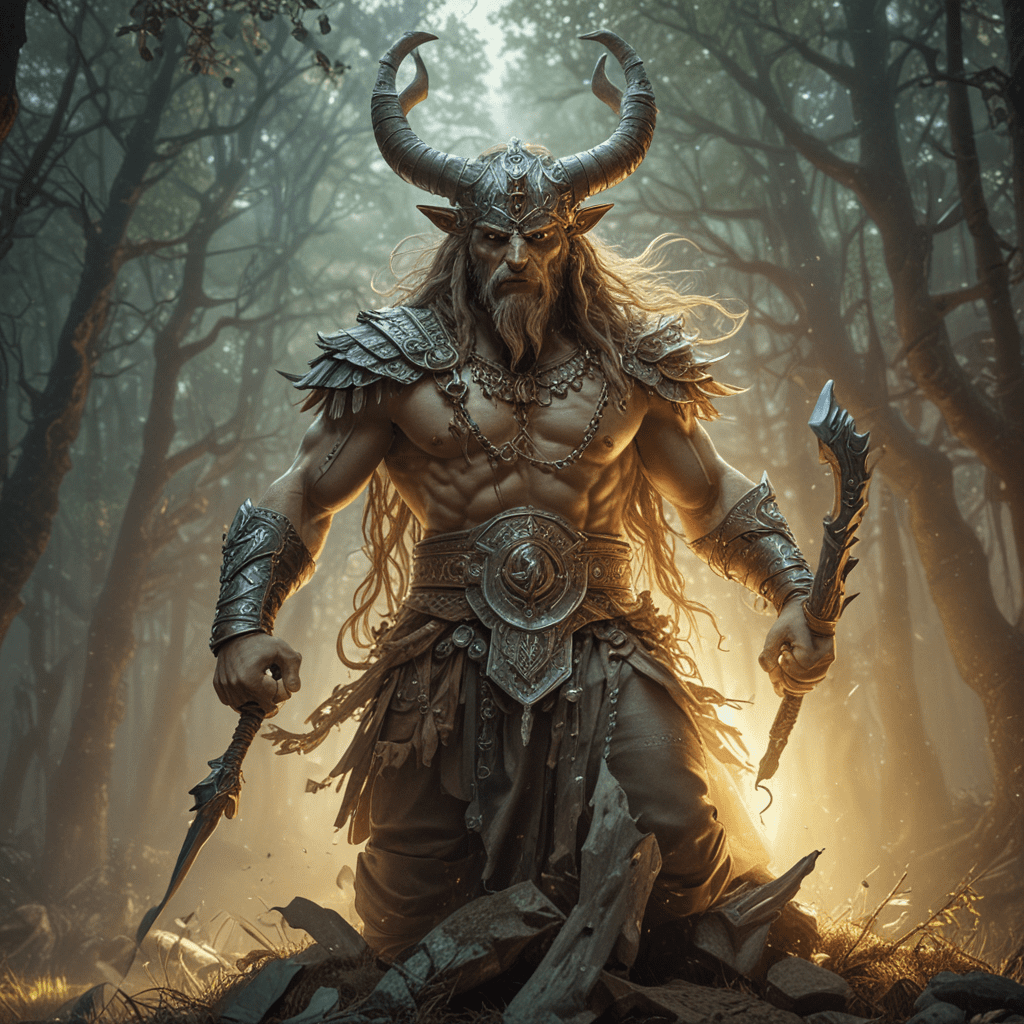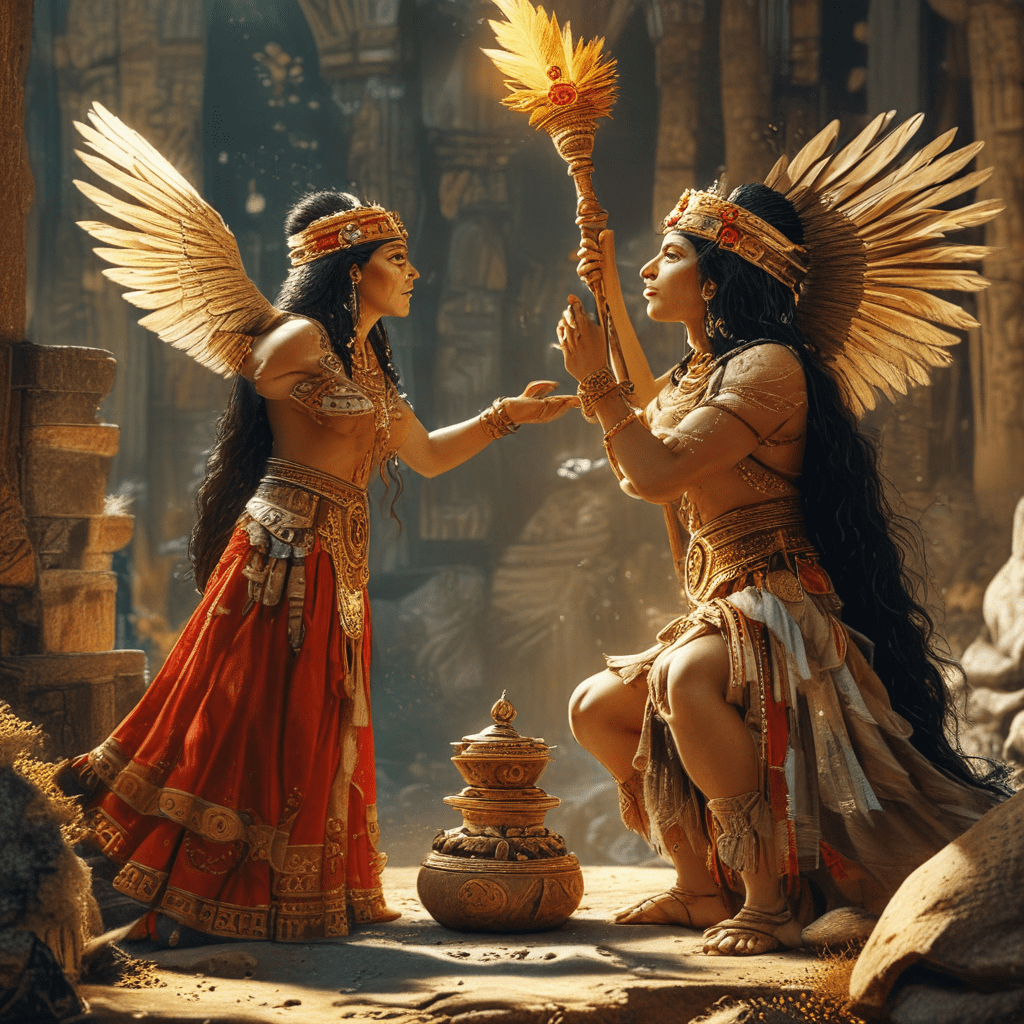Creation Myths: The Legends That Shaped Our Understanding of Life
I. Introduction to Creation Myths
Creation myths are traditional stories that explain the origins of the world, humanity, and the cosmos. These narratives often serve as foundational tales for cultures, providing insight into their values, beliefs, and understandings of existence. Creation myths are not limited to any single culture; they appear in various forms across the globe, reflecting the diverse ways in which human societies grapple with the mysteries of life.
The importance of creation myths lies in their ability to unite people through shared narratives, offering explanations for the unknown and a sense of belonging. This article will explore the role of creation myths in human culture, provide a comparative analysis of global creation myths, examine their impact on religion, consider scientific perspectives, analyze psychological interpretations, discuss their evolution over time, investigate their presence in popular culture, and contemplate their future in a globalized world.
II. The Role of Creation Myths in Human Culture
Creation myths hold significant cultural value and provide a lens through which we can understand the beliefs and practices of different societies. From an anthropological perspective, these myths often reflect the environment, social structure, and historical context of the cultures that produce them.
- Cultural significance: Myths can serve as a social glue, binding communities together through shared narratives and rituals.
- Reflection of societal values: The themes present in a culture’s creation myth often mirror its core values, ethics, and worldviews.
- Explaining the unknown: Creation myths provide explanations for existential questions, such as the origins of life and the nature of the universe.
III. Comparative Analysis of Global Creation Myths
Creation myths vary widely across different continents, yet they often share common themes and motifs. Below is an overview of some notable creation myths from various regions:
A. Overview of creation myths from different continents
- Africa: The Dogon people of Mali tell of the Nommo, ancestral spirits who brought knowledge and order to the world.
- Asia: In Hindu cosmology, the Rigveda describes the universe’s creation from the cosmic sacrifice of the primordial being, Purusha.
- Europe: Greek mythology features Gaia, the Earth goddess, who emerged from Chaos to give birth to the heavens and the Titans.
- Americas: The Navajo creation story speaks of the Emergence, where people rise through different worlds into the present one, guided by spiritual beings.
B. Common themes and motifs across different cultures
Many creation myths share similar elements, such as:
- The presence of a primordial chaos or void.
- The involvement of a creator deity or deities.
- The emergence of light from darkness.
- The formation of the earth and the cosmos.
- The creation of humans, often with a special purpose or relationship to the divine.
IV. Creation Myths and Their Impact on Religion
The intersection of mythology and religion is profound, with many religious belief systems incorporating creation myths as foundational narratives.
A. The intersection of mythology and religious belief systems
Creation myths often serve as the basis for religious doctrines, influencing how adherents perceive the world and their place within it.
B. How creation myths inform theological doctrines
Religious teachings about morality, purpose, and the nature of the divine are frequently rooted in these ancient stories.
C. Case studies: The Genesis account in Christianity and its parallels in other traditions
The Genesis creation narrative in the Bible shares similarities with other traditions, such as the Enuma Elish of Babylon, highlighting the cross-cultural connections of creation stories.
V. Scientific Perspectives on Creation Myths
The relationship between science and mythology is complex, as both seek to explain the origins of the universe, albeit through different methodologies.
A. The relationship between science and mythology
While creation myths provide spiritual and cultural explanations, science relies on empirical evidence and theories to understand cosmic origins.
B. How creation myths have influenced early scientific thought
Many early scientists were influenced by the prevailing myths of their cultures, which shaped their inquiries into the natural world.
C. The conflict and dialogue between creation myths and modern science
The emergence of the Big Bang Theory and evolution has sparked debates on the compatibility of scientific and mythological explanations of creation.
VI. Psychological Interpretations of Creation Myths
Psychologically, creation myths can be viewed as archetypal stories that reveal deep-seated human experiences and collective consciousness.
A. Jungian analysis of archetypes in creation stories
Psychologist Carl Jung suggested that creation myths contain archetypes that resonate with universal human experiences, such as birth, death, and transformation.
B. The role of myths in personal and collective psychology
Myths can help individuals navigate their personal journeys and understand their place within the larger human narrative.
C. How creation myths help individuals understand their place in the world
Through these stories, people can find meaning and context for their existence, connecting their lives to a greater cosmic narrative.
VII. The Evolution of Creation Myths Over Time
Creation narratives are not static; they evolve as cultures change and adapt to new realities.
A. Historical changes in creation narratives
Over centuries, many creation myths have undergone transformations, reflecting shifts in societal beliefs and values.
B. Adaptation of myths in response to cultural shifts
As societies encounter new challenges, their creation myths may be reinterpreted to provide contemporary relevance.
C. The role of oral tradition and written texts in myth evolution
Oral traditions preserve myths across generations, while written texts can solidify and alter these narratives, influencing how they are perceived.
VIII. Creation Myths in Popular Culture
Creation myths continue to resonate in modern literature, film, and art, shaping contemporary storytelling.
A. Representation of creation myths in literature, film, and art
Many works of fiction draw upon creation myths, reimagining ancient stories for modern audiences.
B. Modern retellings and adaptations of ancient myths
Adaptations of creation narratives can be found in various media, exploring timeless themes in fresh contexts.
C. The influence of creation myths on contemporary storytelling
The archetypal elements of creation myths influence the structure and themes of contemporary narratives, providing a rich tapestry for storytellers.
IX. The Future of Creation Myths in a Globalized World
In an increasingly interconnected world, the future of creation myths may be shaped by cross-cultural exchanges and technological developments.
A. The potential for cross-cultural myth exchange
Globalization allows for the sharing and blending of diverse creation myths, leading to new interpretations and understandings.
B. The impact of technology and social media on myth propagation
Social media platforms can facilitate the rapid dissemination of creation myths, allowing for broader engagement and reinterpretation.
C. Preservation of indigenous creation stories in a changing world
Efforts to document and preserve indigenous creation stories are crucial in maintaining cultural heritage amidst globalization.



